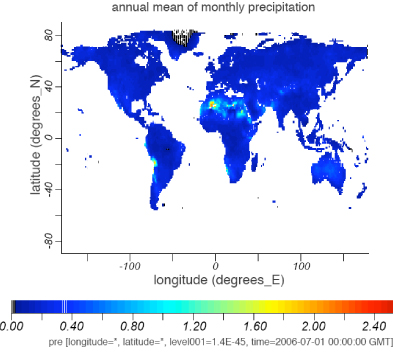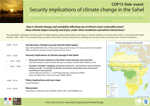COP15 Side-event: Security implications of climate change in the Sahel (SICSS)
Copenhagen, Denmark, 14 December 2009How is climate change and variability affecting one of Africa’s most vulnerable areas? Does climate impact security and if yes, under what conditions and which interactions? Co-organised by the SWAC Secretariat, the French Ministry of Foreign and European Affairs and the UK Foreign and Commonwealth Office, this side-event presented intermediary results of a multidisciplinary study conducted by the SWAC Secretariat and the UK Meteorological Office Hadley Centre. > Agenda |
Key findings
|
The Sahel is one of the regions of the world where the variability of precipitation is the most important (see map). Climate projections for rainfall are highly uncertain with some models predicting a strong dry anomaly, with others predicting strong wet anomalies. For the future, the challenge of this zone is to be able to manage uncertainty rather than to prepare itself for a well identified threat (as for example the rise of the sea level in Bangladesh). An historical analysis of past security events shows that climate variables have in all cases played a role (aggravating factor, trigger etc.). However, there is no possibility of establishing a systematic link between climate variability and insecurity. In the short term, one possible policy measure could be to integrate climate variables in early warning systems on conflicts and the analysis of insecurity signals. In addition, there is a strong need to develop better performing climate models (regional models) and forecasting mechanisms. |
 |
Related Documents


